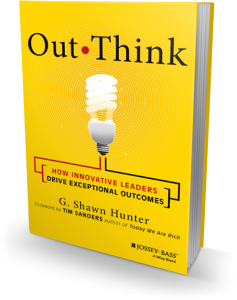Performance Goals are not Learning Goals
“Talent is cheaper than table salt. What separates the talented individual from the successful one is a lot of hard work.”
– Stephen King
A performance goal is when you want to perform well. You want to shine. You want to be brilliant. You want to people to applaud. You want to be amazing. You want the medal around your neck and the beaming joyful praise from those around you. A performance goal is tied to your ego.
A learning goal is an aspiration to learn something new or improve at a particular skill or task. Learning something new requires experimentation or hard work or studying something at length, or collaborating with others in new ways. Learning goals are hard.
Sometimes a learning goal involves staring intently at someone else who is more skilled in order to visualize, and then develop, a particular skill yourself. And sometimes a learning goal involves spectacular failure while attempting something new.
But these are two different goals.
Carol Dweck led a fascinating study in which she and her colleagues worked with 128 5th graders and gave them a series of tests – mostly puzzles – and then praised them in two different ways with eight little words.
Round 1: For the first round of puzzles, the kids were given a test that everyone did very well on. The researchers knew they would do well.
With half of the group they said, “You must be smart at these problems.”
With the other half of the group they said, “You must have worked hard at these problems.”
The first word set praises intelligence, and innate talent or skill. This is similar to how many parents and coaches get trapped into talking about our kids. This is sometimes how we speak to kids in performance situations. We tell them how smart they are, or how naturally gifted they are. We tell them they play soccer like Messi, or paint like Picasso.
The second word set praises effort, determination, preparation, grit. It’s a message that reinforces hard work. It’s a message that says You rocked it because you preserved through adversity. After delivering two different kinds of praise, the researchers were interested in:
- how would the kids view their own abilities?
- what kinds of challenges would they choose for themselves?
Round 2: Then they gave the kids another round of puzzles. But this time the kids were offered a choice. They could try harder problems or easier ones. You guessed right, the kids praised for hard work chose to attempt the harder problems. After all, they were just told they did well because they worked hard. Why not go for the harder problems.
The kids praised for their natural talent, and innate brilliance, selected the easier problems. Why? Because when you praise for innate talent, you create a form of status. If someone believes they have special talent and they are expected to perform well, then the thought of failing becomes scary. So to protect ourselves as a “gifted and talented” individual we will choose easier tasks to ensure we have high performance. After all, no one wants to be revealed as an imposter.
Round 3: Time for tough love. In the next part of the study all of the kids were given harder problems. And all of the kids performed poorly. Yes, the kids praised for hard work spent more time on the test, and did a little bit better. But next came the interesting twist. After the test, and the scores were given out, the researchers invited the kids to share the results with their classmates. After all, it was just an experiment. It didn’t really count as part of their school work. Who cares, right?
When the researchers asked the kids to share their results, the kids praised for talent lied just a little bit about their scores. They told their friends they did better than they actually did. Presumably this was to maintain their social status as “talented.” However, when the other kids praised for effort were asked to tell their peers how they did on this set of questions, only 10% of them exaggerated their performance. They felt no loss of self-esteem from doing poorly on difficult problems.
Round 4: Here’s where it gets really interesting. In the next phase of the study, both sets of kids were given problems comparable to the original set of problems. In terms of difficulty, this set of problems was just as challenging as the first. Remember the first set of problems was easy. Everyone did well.
The group praised for their genius and innate talent had just had an ego setback in the earlier round. They did 20% worse than they did the first time around. They were told they were smart, then they performed poorly, and now attacking the same level of difficulty with decreased confidence they did 20% worse.
The second group did 30% better the second time they took the same difficulty test. The difference was just 8 words.
Performance Goals vs. Learning Goals
Finally, Carol Dweck and her colleagues looked at the choices the kids made after receiving the two different kinds of praise. I’ll skip right to the punchline:
- 69% of children praised for intelligence preferred performance goals
- 88% of children praised for hard work preferred learning goals
That’s right. When we praise for intelligence we reinforce a predisposition to protect a “gifted and talented” status by choosing tasks which we are more likely to perform well at. And when we praise for hard work, perseverance, tenacity, and pluck, we reinforce the notion that learning is a good thing – that choosing difficult tasks for the sake of continuous improvement is something to be sought-after.
Next time you see excellence, praise the effort, the grit, the patience and hard work it must have taken to get there. You’ll not only be rewarding excellence, but also reinforcing the idea that continuous growth and learning is a good thing. Because it is a good thing.
- Join my Email updates for regular updates on leadership and life
- Learn more about my Speaking work
____________________________________________________

Twitter: @gshunter
Say hello: email@gshunter.com
Web: www.shawnhunter.com




